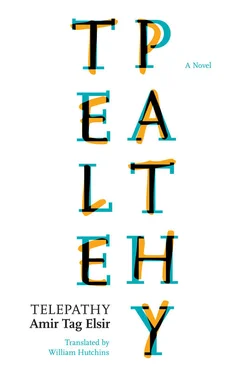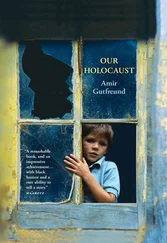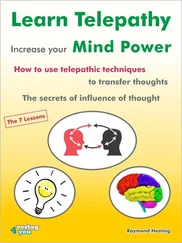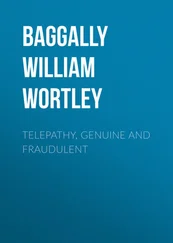The tale of Nishan’s telepathic communication with me and of his transmission of the novel no longer concerned me much — not at present anyway. I did not want to busy my mind with searching for its causes and how it had happened. Recalling it all yesterday had exhausted me.
What I wanted, quite seriously, was to counteract the arid destiny I had written and attempt to adorn it with some verdure, even if it proved obstinate and insisted on remaining dry. I wanted to perform what I considered my imperative duty, while stepping away from my career as a novelist whose works are distributed nationally and internationally, in order to be an ordinary person who would sweep his neighbor’s courtyard if he found it dirty, milk a goat for an elderly woman with shaky hands, or carry a small child on his back while crossing a street bristling with traffic accidents. I thought this would not be out of character for me, because I have a benevolent personality and in the past repeatedly performed such chores. It was just that at this time, I needed to change my life’s pattern to allow this character to succeed.
I first considered bringing Nishan to live in my house and placing beds for him and Joseph Ifranji in one of the library rooms. In that way I would be only steps away from the headache’s epicenter. I changed my mind, however, when clear thinking supplanted my emotional reaction and I realized that the situation did not really warrant this. How could I know the consequences of having two strangers live with me, one of whom was insane and likely to die young — if my novel was accurate — while the other carried a troubled history on his back? I once wrote a novel about the ploys of desperate people whom I united in a single cohort by either putting them in prison or shutting them up in a room and allowing them to conspire together. I had distinct characters, who would never have met in real life, live for a month in a single house. The result was that the earth’s gravest treacheries occurred in that house.
So I decided to rent a small retreat. That much had happened. What would happen next was for Nishan to move there and for Ifranji to abandon the rag he slept on in the Aisha Market and move in as well. If some crisis occurred, it wouldn’t be in my house and wouldn’t concern me. If Nishan rebelled against Ifranji, that rebellion wouldn’t reach me and wouldn’t affect me.
I developed my plans without consulting Nishan, because I felt sure that a person who begged for assistance telepathically would accept a volunteer’s helping hand. Moreover, he hadn’t merely sent the message, he had come once he was free of the symptoms of schizophrenia to greet me in person and narrate his life story in a balanced and orderly manner, right up to the moment he went into convulsions and appeared to be in serious danger.
At this stage the important question was whether Nishan would pose a threat to Ifranji.
Wasn’t there some possibility he might kill him? In that event, I would regret not merely a novel I had written but blood I had played a part in shedding. I explained this possible threat to Ifranji forthrightly as he sat beside me while we were entering Wadi al-Hikma — after ordering him gruffly to take off the old, broken pair of sunglasses he was wearing, because I wanted to see and assess the reaction in his eyes.
He responded with a laugh, “No problem! The old Aisha Market, after the shoppers leave and the gates are closed, fills with jinn who appear toward the end of the night. The guards slip away then, and many’s the time I’ve fought off vicious jinnis and won.” He said he was friends with all the families of jinn living there. He also had an extraordinarily beautiful jinni sweetheart named Daldona, who loved him and slept with him on the cloth every night. When I stopped the car near a group of people to ask for Nishan, since I had forgotten the location of his house — or rather his shack — Ifranji added, “This madman, Nishan, won’t be any more savage than the jinni named Sherlock, and I cut off his ears and castrated him when he wanted to seduce my girlfriend, Daldona.”
I laughed — I needed that laugh — and decided to allow matters to proceed according to my plan. I would not scrap or change a thing — at least not for now.
We climbed out of my car near a group of people standing in front of some carpets spread on the bare ground. Men with diverse miens and of different ages were selling food: bitter black bread, bones with no meat on them, and a few questionable-looking vegetables. The smell of decomposing fish was pervasive. Three women were selling tea and coffee nearby. Everything came to a halt suddenly: the vendors’ cries, the importunate bargaining sessions, and the rude courting directed at nubile girls by uncouth tongues. Genuine and insolent curiosity surrounded us as a narrow cordon formed, and a number of children holding small rocks and arrows, supposedly for hunting small birds, approached. But I couldn’t see a single green tree — or any tree at all — and where there are no trees there are no birds. Some women whose inquisitiveness had overwhelmed them drew nearer, along with men who resembled Nishan so closely that if I had added lunacy to their résumés and provided them with lit cigarettes and copies of Hunger’s Hopes , they would all have become Nishan in that novel.
I was approached by a bearded man of about fifty. He was relatively clean and wore garments made of unbleached dammur cotton as well as a white turban. He accosted me directly and said that his name was Hajj al-Bayt (or Pilgrim of the Holy House) and that he was the imam of the only mosque in the district.
He pointed to a patch of ground to my left; there wasn’t any actual building, only a section of bare land outlined by horizontal rows of mud bricks and pebbles. Inside were spread old kilim carpets with frayed edges. The pulpit seemed to be some old pieces of wood arranged like a dais. He asked me why we were in Wadi al-Hikma and if we were important government representatives who wanted to bring joy to residents’ hearts with good news. They had, it seemed, been waiting for the arrival of water and electrical service for some time and yearned to receive titles to the tracts on which they lived.
Ifranji and I aroused suspicion because we obviously didn’t belong there. I doubt that the hand of a government that brings delight to hearts is long enough to extend to such a district. The hand that will arrive is the other one, the brutal hand that tears down cardboard and corrugated metal shacks and evicts residents to points unknown. I told the man that we weren’t from the government and brought no news. We were merely looking for Nishan Hamza Nishan, who lived there, for an important matter.
“Nishan Hamza Nishan? This is odd. No one has asked for him for a long time. Do you know him?” he asked. “What do you want with him?”
He seemed to think our mission eccentric, and the group that clustered around us ever more tightly did too. The skeletons of unfinished houses, the shacks of corrugated metal and the little piles of human excrement in the empty lots of a district that totally lacked storm sewers left me incredulous. No one would actually request a lunatic distinguished only by his poverty in such a poor district. A novelist who had received seventy folded pages from this man telepathically was fully justified, however, in making such a request on behalf of his conscience. The novelist’s conscience made the request, not the novelist.
“We wish to treat his schizophrenia,” I explained as I attempted to show with my very posture how serious we were. With hands clasped behind my back, I looked the man straight in the eye, although Joseph Ifranji had adopted a loafer’s classic pose. He had removed his broken sunglasses and begun to stare with lustful eyes at a brown girl who was about twenty and appeared to be a Southerner attracted by the all-encompassing curiosity.
Читать дальше












